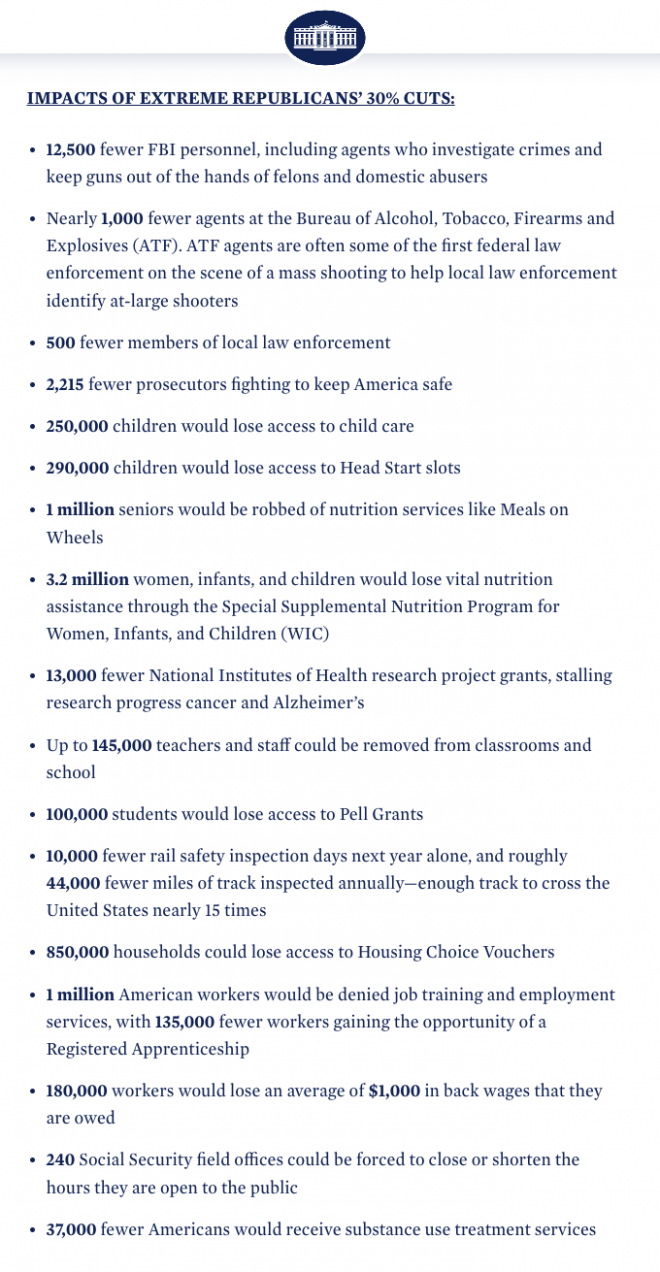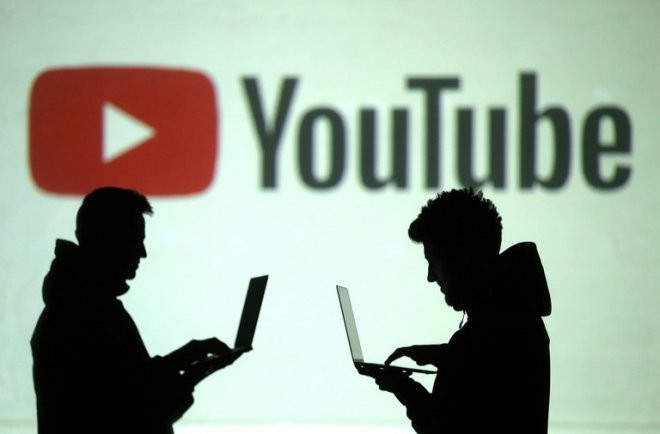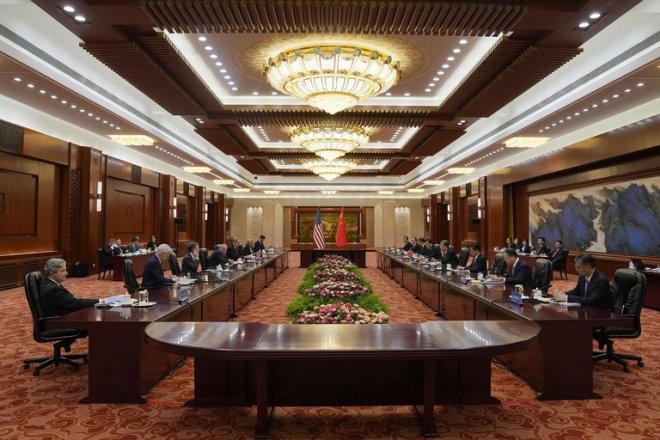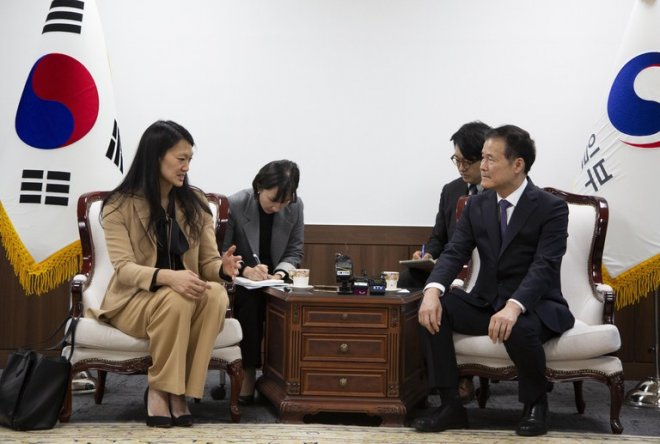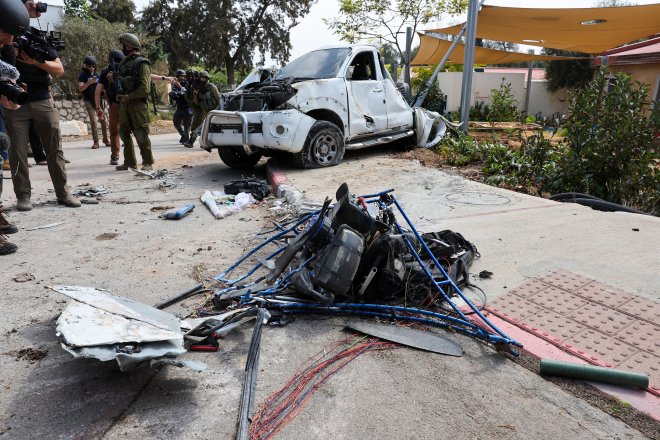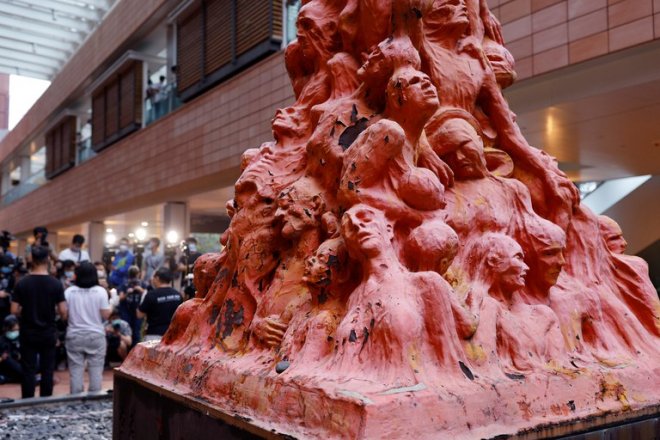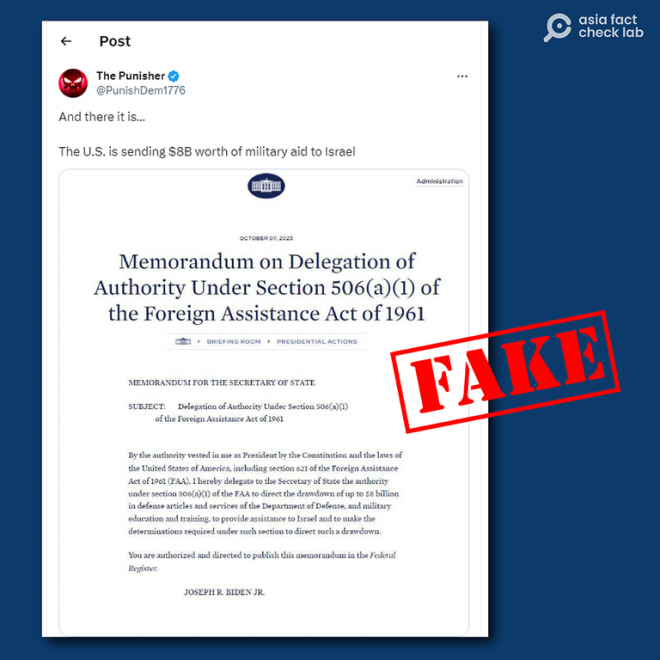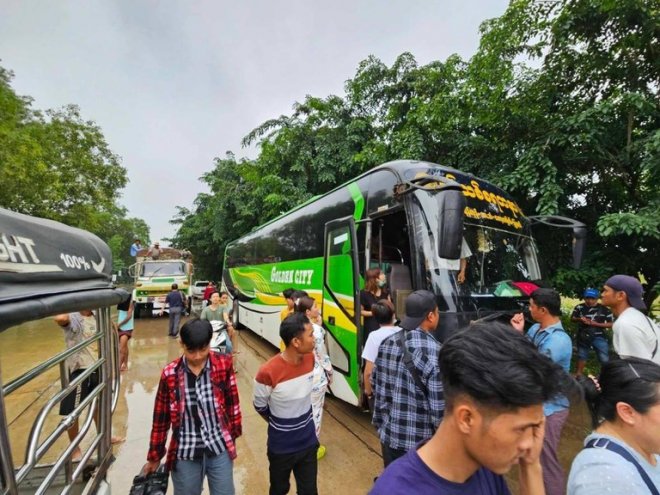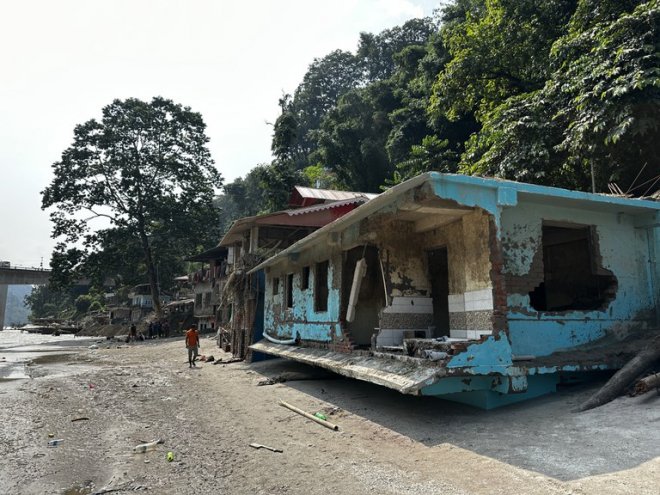Vietnamese authorities fear domino effect from China protests, observers say
Vietnam’s communist regime is being accused of limiting coverage of widespread protests in China because of fears of a knock-on effect in a country which has a track record of jailing activists and cracking down on dissent.
Protests broke out in Chinese cities last week, with locals demonstrating against the country’s strict zero-COVID policies. They were triggered by widespread social media coverage of the deaths of 10 people in a Xinjiang region fire, trapped in a building that had been sealed off to prevent a pandemic.
Protesters called for an end to one-party rule and demanded the resignation of the country’s President and Communist Party General Secretary Xi Jinping. Authorities reacted by deploying police and security teams to arrest protestors and sealing off streets and university campuses.
Vietnam’s state-controlled media, tightly controlled by the Central Commission of Propaganda and Education of the Communist Party of Vietnam, have either been silent or offered limited coverage.
Among the major newspapers, only Tuoi Tre online reported the response of the United Nations, U.S. and U.K. to the Chinese protests. The article was published on Monday night but Tuoi Tre removed the article before dawn the next day. Early on Tuesday morning, the screen switched to an "error (404)" message. The article title in a Google search contains the word “protest"" but the content has been deleted.
Online newspaper VietStock posted an article on Tuesday afternoon saying China stocks slipped due to concerns about protests, only briefly stating "The protests spread over the weekend as people in major cities -- including Beijing and Shanghai -- took to the streets to protest China"s COVID control measures."
Vietnam also censors news from international media. CNN"s coverage of the protests on cable was cut off and the words: “Weak signal, please understand” appeared on the screen.
“The fact that Vietnam does not report on the current situation of widespread protests in China is a manifestation of an unprofessional media system. Truth and honesty must be at the core of decent journalism,” retired army colonel Nguyen Phu Hai told RFA.
He said the Chinese people"s opposition to ‘zero-COVID’ was inevitable because they could not be expected to silently suffer hunger and thirst, or even die because of government policy.
Fear of affecting diplomatic relations with China
Hanoi-based businessman Dang Thanh (renamed for security reasons) said the Vietnamese side did not report unfavorable information on Communist China for fear of affecting diplomatic and economic relations between the two countries.
Former military intelligence officer Vu Minh Tri told RFA he didn’t find the restriction of information by Vietnamese media strange, especially since Vietnam and China signed the 16-Word Guideline treaty in 1999.
“The fate of the Communist Party of China and the communist regime in China correlates with the fate of the Communist Party of Vietnam and the communist regime in Vietnam. In the context of the communist regime in China being opposed by a large number of people and people demanding change, the Vietnamese side"s silence is understandable because they are in the same boat." he said.
The Vietnamese government is afraid
Some observers believe state-controlled media do not want or dare to report the protests because the Vietnamese government is afraid of the protesters’ sentiment spreading from a country of more than 1.4 billion people, given the context of many uncertainties in Vietnamese society.
In recent weeks, there have been protests in Vietnam’s cities and provinces by people who feared for bank savings or lost money invested in businesses. They included violent scuffles outside conglomerate Vingroup’s Hanoi headquarters when protesters came to demand the papers for holiday rental apartments they had invested in. Authorities also feared widespread bank runs after the arrest of the chairwoman of Ho Chi Minh City-based Van Thinh Phat Holdings Group for illegally issuing bonds worth tens of millions of U.S. dollars and obtaining prime real estate in the city through fraudulent means. Depositors in Saigon Joint Stock Commercial Bank (SCB) raced to withdraw their funds over suspicions of her ties to the lender.
Hanoi also has experience with protests in 2018 that brought thousands of people out of the streets of major cities to demonstrate against the Bill on Special Economic Zones.
“The situation of protests in China will affect people"s knowledge in Vietnam. It encourages the people"s desire for change. Especially in recent times when the Vietnamese Government has taken actions that are said to be indecisive in protecting the interests of the people, when they have suffered great damage from banks,” said entrepreneur Dang Thang.
"China is a more totalitarian society than Vietnam and people still protest like that. Why don"t Vietnamese people exercise their right to protest?" a Hanoi lawyer and social activist told RFA on condition of anonymity for security reasons.
“The Vietnamese state has delayed the issuance of the Demonstration Law for many years. Hopefully there will be no further delays,” said scholar Ha Hoang Hop.
Duong Quoc Chinh, who has 65,000 followers on Facebook, said he thought blocking news of the China protests in Vietnam would not be effective because it would spread on social media.
“What is the use of blocking information? People may think that imposing censorship means Vietnam’s regime is directed by the Chinese one,” he said, adding that he believes state television channel VTV will soon have to report the news.
[圖擷取自網路,如有疑問請私訊]
Protests broke out in Chinese cities last week, with locals demonstrating against the country’s strict zero-COVID policies. They were triggered by widespread social media coverage of the deaths of 10 people in a Xinjiang region fire, trapped in a building that had been sealed off to prevent a pandemic.
Protesters called for an end to one-party rule and demanded the resignation of the country’s President and Communist Party General Secretary Xi Jinping. Authorities reacted by deploying police and security teams to arrest protestors and sealing off streets and university campuses.
Vietnam’s state-controlled media, tightly controlled by the Central Commission of Propaganda and Education of the Communist Party of Vietnam, have either been silent or offered limited coverage.
Among the major newspapers, only Tuoi Tre online reported the response of the United Nations, U.S. and U.K. to the Chinese protests. The article was published on Monday night but Tuoi Tre removed the article before dawn the next day. Early on Tuesday morning, the screen switched to an "error (404)" message. The article title in a Google search contains the word “protest"" but the content has been deleted.
Online newspaper VietStock posted an article on Tuesday afternoon saying China stocks slipped due to concerns about protests, only briefly stating "The protests spread over the weekend as people in major cities -- including Beijing and Shanghai -- took to the streets to protest China"s COVID control measures."
Vietnam also censors news from international media. CNN"s coverage of the protests on cable was cut off and the words: “Weak signal, please understand” appeared on the screen.
“The fact that Vietnam does not report on the current situation of widespread protests in China is a manifestation of an unprofessional media system. Truth and honesty must be at the core of decent journalism,” retired army colonel Nguyen Phu Hai told RFA.
He said the Chinese people"s opposition to ‘zero-COVID’ was inevitable because they could not be expected to silently suffer hunger and thirst, or even die because of government policy.
Fear of affecting diplomatic relations with China
Hanoi-based businessman Dang Thanh (renamed for security reasons) said the Vietnamese side did not report unfavorable information on Communist China for fear of affecting diplomatic and economic relations between the two countries.
Former military intelligence officer Vu Minh Tri told RFA he didn’t find the restriction of information by Vietnamese media strange, especially since Vietnam and China signed the 16-Word Guideline treaty in 1999.
“The fate of the Communist Party of China and the communist regime in China correlates with the fate of the Communist Party of Vietnam and the communist regime in Vietnam. In the context of the communist regime in China being opposed by a large number of people and people demanding change, the Vietnamese side"s silence is understandable because they are in the same boat." he said.
The Vietnamese government is afraid
Some observers believe state-controlled media do not want or dare to report the protests because the Vietnamese government is afraid of the protesters’ sentiment spreading from a country of more than 1.4 billion people, given the context of many uncertainties in Vietnamese society.
In recent weeks, there have been protests in Vietnam’s cities and provinces by people who feared for bank savings or lost money invested in businesses. They included violent scuffles outside conglomerate Vingroup’s Hanoi headquarters when protesters came to demand the papers for holiday rental apartments they had invested in. Authorities also feared widespread bank runs after the arrest of the chairwoman of Ho Chi Minh City-based Van Thinh Phat Holdings Group for illegally issuing bonds worth tens of millions of U.S. dollars and obtaining prime real estate in the city through fraudulent means. Depositors in Saigon Joint Stock Commercial Bank (SCB) raced to withdraw their funds over suspicions of her ties to the lender.
Hanoi also has experience with protests in 2018 that brought thousands of people out of the streets of major cities to demonstrate against the Bill on Special Economic Zones.
“The situation of protests in China will affect people"s knowledge in Vietnam. It encourages the people"s desire for change. Especially in recent times when the Vietnamese Government has taken actions that are said to be indecisive in protecting the interests of the people, when they have suffered great damage from banks,” said entrepreneur Dang Thang.
"China is a more totalitarian society than Vietnam and people still protest like that. Why don"t Vietnamese people exercise their right to protest?" a Hanoi lawyer and social activist told RFA on condition of anonymity for security reasons.
“The Vietnamese state has delayed the issuance of the Demonstration Law for many years. Hopefully there will be no further delays,” said scholar Ha Hoang Hop.
Duong Quoc Chinh, who has 65,000 followers on Facebook, said he thought blocking news of the China protests in Vietnam would not be effective because it would spread on social media.
“What is the use of blocking information? People may think that imposing censorship means Vietnam’s regime is directed by the Chinese one,” he said, adding that he believes state television channel VTV will soon have to report the news.
[圖擷取自網路,如有疑問請私訊]
|
本篇 |
不想錯過? 請追蹤FB專頁! |
| 喜歡這篇嗎?快分享吧! |
相關文章
AsianNewsCast








